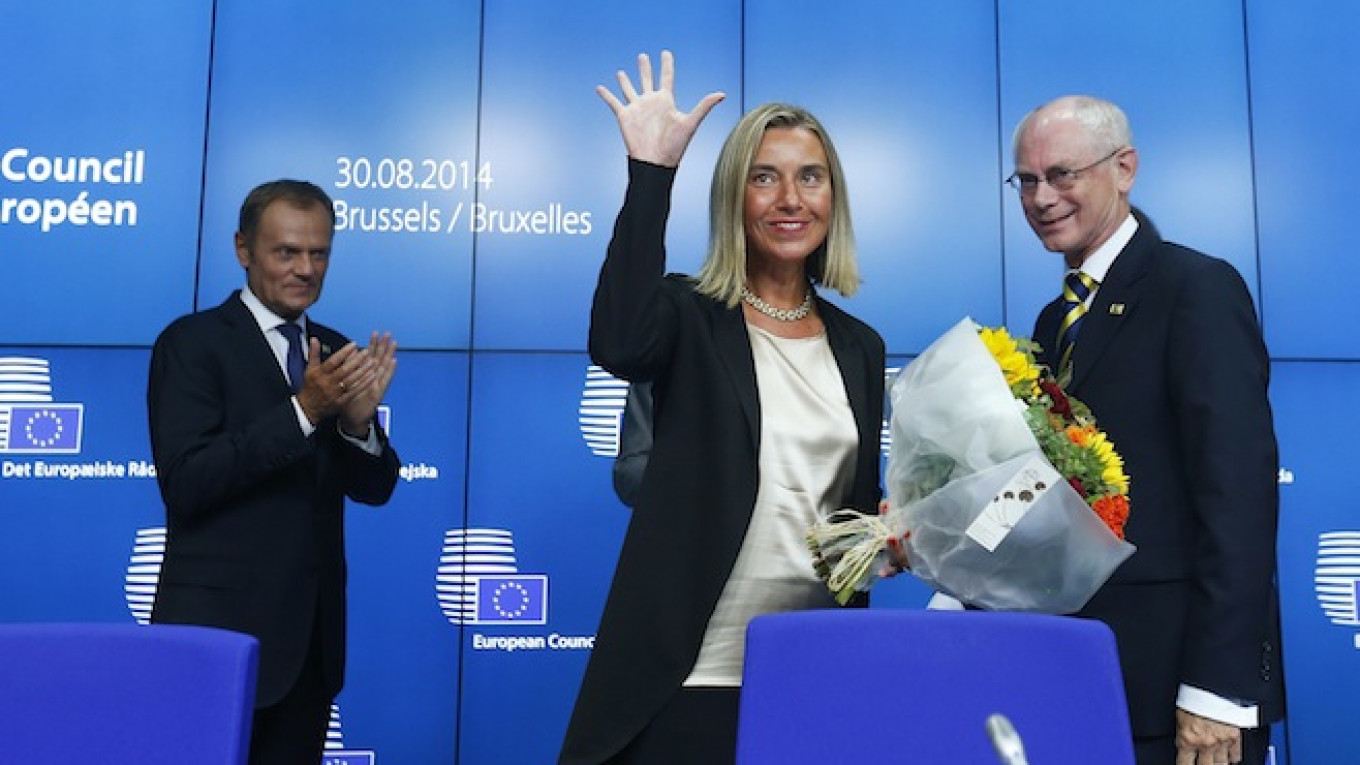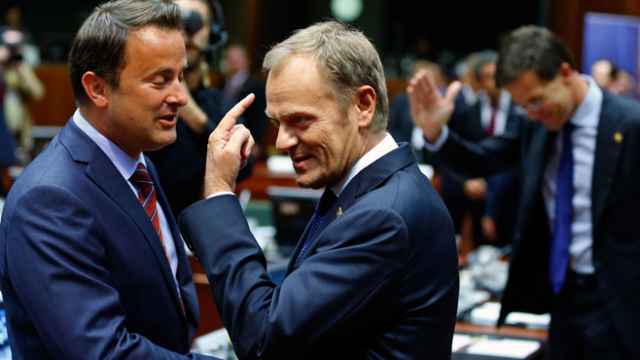The European Union's newly nominated foreign policy chief Federica Mogherini said President Vladimir Putin's Ukraine policy had resulted in economic sanctions that were hurting his own people.
Speaking in her first newspaper interview since being tapped for the job on Saturday, Mogherini told Italy's Corriere della Sera on Monday that sanctions remained "a tool" in brokering what had to be a diplomatic resolution to the Ukraine fighting.
"The point is whether the impact that the sanctions are having on the Russian economy will change the rational behavior of the leadership," she said.
"At the moment, the Kremlin is acting against the interests of its people."
On Sunday, EU leaders threatened Russia with more trade sanctions if it failed to start reversing its actions in Ukraine, asking officials to draw up a new list of measures that could hit a range of sectors within the week.
The EU, along with the United States, first imposed sanctions on Moscow in March for annexing Crimea, and imposed trade restrictions on Russia's financial and oil industries after a Malaysian airliner was shot down in July over separatist territory in the Ukraine, killing nearly 300 people, most of them Dutch.
Mogherini's comments, unusually blunt for the 41-year-old who is currently Italy's foreign minister, come after critics to her nomination said she may be soft on Moscow because of Italy's dependence on Russian gas.
They also signal increased concern in Europe after Putin called on Sunday for immediate talks on the "statehood" of southern and eastern Ukraine.
Mogherini said Putin's statement could "further undermine the territorial integrity, the very endurance of the country" and accused the leader of being an unreliable diplomatic counterpart.
"Putin has never respected the commitments he made in several situations, in Geneva, in Normandy, in Berlin. He wasted the chance to turn things around by influencing the separatists after the shooting down of the Malaysian airplane. The distance between commitments and concrete action has been enormous," she said.
Putin said Monday he hoped the West would exercise "common sense" in weighing new sanctions, according to news agency Interfax.
"I hope that common sense will prevail and we will work in a normal modern way, and that neither we nor our partners will bear the costs of these mutual jabs," the agency reported him as saying.
Moscow has responded to sanctions so far by banning the import of most Western foodstuffs and shutting down McDonald's restaurants, citing health concerns.
The 41-year-old Mogherini's five-year appointment to take over in Brussels for Britain's Catherine Ashton is subject to approval by the European Parliament and she would not take her post until November.
A Message from The Moscow Times:
Dear readers,
We are facing unprecedented challenges. Russia's Prosecutor General's Office has designated The Moscow Times as an "undesirable" organization, criminalizing our work and putting our staff at risk of prosecution. This follows our earlier unjust labeling as a "foreign agent."
These actions are direct attempts to silence independent journalism in Russia. The authorities claim our work "discredits the decisions of the Russian leadership." We see things differently: we strive to provide accurate, unbiased reporting on Russia.
We, the journalists of The Moscow Times, refuse to be silenced. But to continue our work, we need your help.
Your support, no matter how small, makes a world of difference. If you can, please support us monthly starting from just $2. It's quick to set up, and every contribution makes a significant impact.
By supporting The Moscow Times, you're defending open, independent journalism in the face of repression. Thank you for standing with us.
Remind me later.






